In Benoît Jacquot’s production, Manet’s Olympia dominates the stage of the Opéra Bastille. In 1863, the painting caused a scandal: the prostitute awaits her client, her expression proud, her demeanour assured. Is this Violetta? Like Olympia, Verdi’s most celebrated heroine surrenders to the spectator just as she surrenders to love, going so far as to die on stage, a woman’s ultimate sacrifice for her lover. Or might it be the spectator who strips her bare and intrudes upon her privacy, in the image of this milieu of social voyeurism? Whatever the case, these two women regard us with defiance and subjugate those who cannot help but look at them.
Related Movies
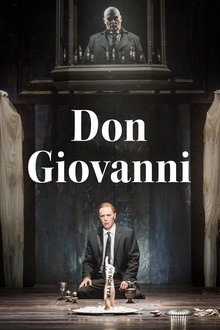
Don Giovanni (2013)
Mozart’s Don Giovanni was first performed in 1787, and was based on the story of the Spanish lothario, Don Juan. The title character seduces, deceives and murders his way through the opera, doing his utmost to experience life, and all that it has to offer, to the full.
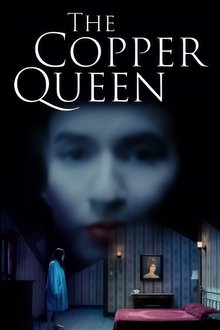
The Copper Queen (2021)
Still healing from her grandmother’s death, Addison Moore finds herself checking into The Copper Queen Hotel in Bisbee, Arizona. Aware of the ghost stories and hauntings, Addison fearlessly elects to stay in Room 315, the location of the heartbroken Julia Lowell’s death a century ago.

Poulenc: Dialogues des Carmelites (2014)
At the end of 2013, the year that marked the 50th anniversary of Francis Poulenc’s death, his gripping and moving operatic masterpiece, Dialogues des Carmélites was staged in Paris by director Olivier Py with a cast featuring some of France’s finest female singers – Patricia Petitbon, Véronique Gens, Sandrine Piau and Sophie Koch – under the baton of Jérémie Rohrer. Le Figaro described the production as “a thing of wonder,” while Le Monde called it: “A masterpiece ... the most exciting and consummately achieved show to have been seen on a Parisian stage in a long time … This was great work, magisterial and unforgettable.” “The memorable Dialogues des Carmélites at the Théâtre des Champs-Elysées marked the climax of commemorative activities for the 50th anniversary of Poulenc’s death,” wrote Opera magazine of the production of Poulenc’s gripping and moving opera that was staged by the French director Olivier Py in Paris in December 2013.

Jonas Kaufmann: Cavalleria Rusticana / Pagliacci (2015)
As comparably short operas, Cavalleria Rusticana and Pagliacci are often billed together, but seldom is the lead tenor making his double role debut as Turiddu and Canio on the same evening. At the 2015 Salzburg Easter Festival, Jonas Kaufmann did just that to rapturous praise. Universally hailed as a coup for Kaufmann, the plaudits were also showered on Philipp Stölzl for his innovative staging which includes live video projections while referencing the era of black-and-white movies.

Eine Nacht in Venedig (2015)
The delightful light operatic farce by Johann Strauss is presented at the Morbisch Lake Festival (Seefestspiele Mörbisch) starring Herbert Lippert, Richard Samek, Heinz Zednik and Dagmar Schellenberger.

Beethoven Fidelio (1978)
This production is a gala affair; the sets are traditional (evocative of 18th-19th century Spain); the lighting is bright, so colors are good and one can see all of the action. Singers are generally well chosen and perform admirably. However, at this point, slight reservations creep in; although Janowitz (Fidelio/Leonore) and Kollo (Florestan) look "good" and act well, the singing parts tax them a bit when pushed to the limit. Most of the time that doesn't matter, and an argument can be made that a little vocal strain is in character with their dire plight. Ideally, for me, Vickers as Florestan would have added extra vocal heft and more sensitive acting than Kollo.
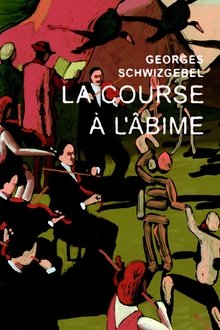
The Ride to the Abyss (1992)
‘La course à l’abîme’ is a depiction of the final ride into hell from ‘La Damnation de Faust’ (1846) by Hector Berlioz.

Alfano - Cyrano de Bergerac (2007)
While best known today for having composed the ending to Puccini's unfinished Turandot, Franco Alfano wrote some dozen operas, including Cyrano de Bergerac (1936) with a libretto by Henri Cain based on Edmond Rostand's drama of the same name. It is a moving tale of romantic misunderstanding, swashbuckling bravado and heartbreaking loyalty, in which the eloquent Cyrano feels unable to express his love for Roxane because of his famously protuberant nose except on behalf of his handsome but inarticulate friend, Christian.

Offenbach: The Tales of Hoffmann (Komische Oper Berlin) (1970)
Walter Felsenstein's staging of Jacques Offenbach's The Tales of Hoffmann at the Komische Opera Berlin.
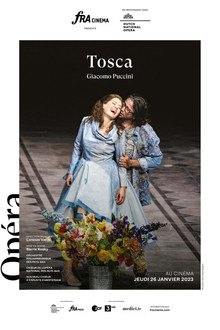
Tosca (2023)
Tosca is a melodrama of love, betrayal and death set in the revolutionary unrest of 1800. The story concerns the opera singer Floria Tosca who tries to save her lover, the painter Mario Cavaradossi, from the brutal chief of police, Scarpia. Through-composed and expertly orchestrated it contains some of Puccini’s best-known lyrical arias and remains one of his most performed operas. In this 2022 production, an eminent cast is directed by the acclaimed Australian director Barrie Kosky – ‘the Amsterdam audience was completely swept off its feet by Kosky’s stunning production’ (Opera News).

Giordano: Andrea Chénier (1996)
This live from the Met telecast from October 1996 of Giordano’s infrequently performed verismo gem is an absolute pleasure to watch and listen to and I highly recommend it. Nicholas Joel’s production is extremely elegant while at the same time being simple and uncluttered. Act I, for example, is dominated by an enormous gilt-framed mirror precariously tilted. I assume that it is a metaphor for the imminent downfall of the decadent aristocracy at the party given by the Contessa di Coigny. The costumes designs by Hubert Monloup are terrific. The prerevolutionary costumes in Act I are simply stunning each one individually tailored for the choristers and major performers.

The Metropolitan Opera: Puccini's La Rondine (2009)
This elegant romance is the least-known work of the mature Giacomo Puccini . The story concerns a kept woman who defies convention to chase a dream of romantic love with an earnest, if naïve, young man. This Met Opera production features the dynamic soprano Angela Gheorghiu and Frenchborn tenor Roberto Alagna performing the roles of Magda and Ruggero, it blooms into its rightful place in the glorious Puccini canon. La Rondine (The Swallow) was commissioned by Vienna s Carltheater in 1913. Due to the impending outbreak of World War I, premiered in 1917, at the Opéra de Monte-Carlo with Gilda Dalla Rizza and Tito Schipa. Set in a Parisian salon, it is the story of Magda, the glamorous mistress of wealthy banker Rambaldo. Her yearning for romantic love compels her into the arms of the ardent and adoring young Ruggero.

Giuseppe Verdi - Nabucco (2007)
The spectacular production from the 2007 festival at the historic Arena di Verona. Renowned Verdi singers Leo Nucci and Maria Guleghina take on the roles of Nabucco and his daughter Abigail. Daniel Oren conducts Verona's resident orchestra. Filmed in High-Definition.
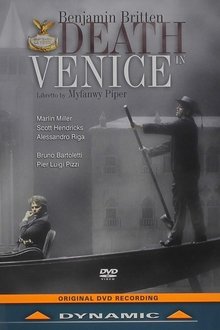
Britten: Death in Venice (2010)
A staging of Britten's opera filmed at the Teatro La Fenice in Venice in June 2008.

Gounod: Romeo et Juliette (2008)
The sensational hit of Salzburg's 2008 festival season arrives on DVD! Starring tenor Rolando Villazón in a stunning performance, this was the must have ticket of the season. Soprano Nino Machaidze, only 25 years old, burst upon the Salzburg stage with an emotionally vulnerable and vocally spectacular performance. With movie star good looks and a large, warm voice, Machaidze wowed the press and audiences alike. Tony Award winner (South Pacific) Bartlett Sher directs this production of Gounod's classic opera. With sets by Michael Yeargan and costumes by Catherine Zuber, the visually vibrant production is sure to become the benchmark. Bonus materials includes "Salzburg Impressions--Behind the Scenes of Roméo et Juliette," "Love and Death in Verona" and Villazón giving an introduction to the opera.

Amadeus (1984)
Disciplined Italian composer Antonio Salieri becomes consumed by jealousy and resentment towards the hedonistic and remarkably talented young Viennese composer Wolfgang Amadeus Mozart.
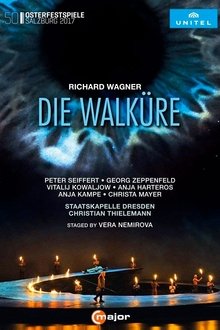
Wagner: Die Walküre (2017)
Die Walküre (The Valkyrie), WWV 86B, is the second of the four music dramas that constitute Richard Wagner's Der Ring des Nibelungen, (English: The Ring of the Nibelung). It was performed, as a single opera, at the National Theatre Munich on 26 June 1870, and received its first performance as part of the Ring cycle at the Bayreuth Festspielhaus on 14 August 1876.
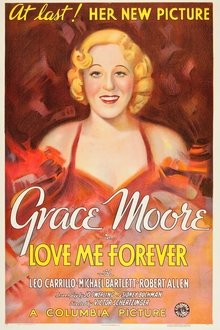
Love Me Forever (1935)
A man who loves an aspiring opera singer is prepared to sacrifice everything to help her with her career, even though he knows she doesn't love him.
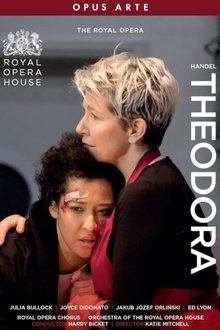
Theodora (2023)
Julia Bullock, Joyce DiDonato and Jakub Jozef Orlinski star in Katie Mitchell’s thrilling new production of Handel’s Theodora in an alternative modern-day reality, Theodora, a religious fundamentalist, plots for the resistance against the Roman occupation. But when her secret plan to destroy the Roman embassy is discovered, she learns the true brutality of her oppressors. Harry Bicket conducts the Orchestra of the Royal Opera House
